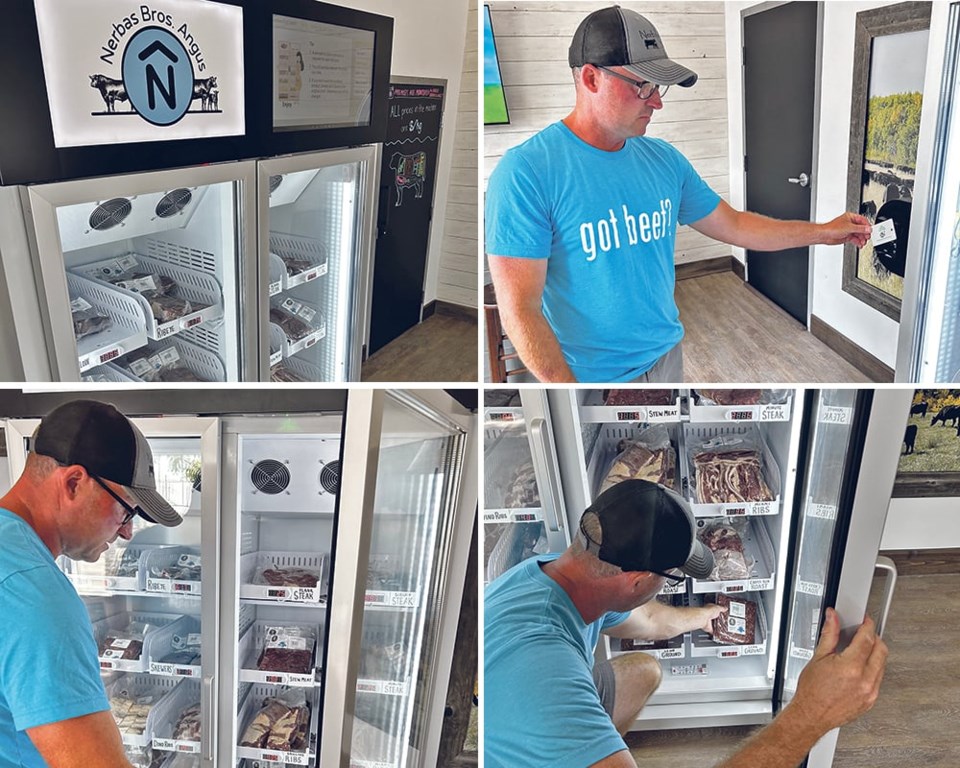WESTERN PRODUCER — Today the machine is working fine.
“I’m the tech,” notes Arron Nerbas, a Shellmouth cattle producer who has just opened an automated retail beef storefront on the main street of this town.
“It’s great … if it all works as it should.”
Nerbas’ venture with retail beef is a way of adding value to his family’s cattle operations. They run a grass-based system incorporating a lush valley floor, the mixed territory of broad valley walls, and a number of pastures at various heights and soil types along the Assiniboine River valley.
Soon this place will be a robo-store.
“It’s basically a vending machine, a self-serve automated machine,” said Nerbas, who is learning all about the human-machine-software nexus.
The machine looks like a stand-up freezer with a few extra bells and whistles, such as a credit card-type swipe unit, locked doors and a lot of frozen beef on its shelves.
Customers can come into the unmanned shop, swipe their customer card, open one of the freezer’s sides, pick and scan their beef, then see the system settle up their account.
As far as Nerbas knows, this is the only such beef vending machine operating in North America. Some of the same units are used in the southern U.S., he believes, but those sell ice cream.
Some units are being used in Europe, but it’s not a widespread retail phenomenon.
Instead of ordering this machine direct from China, Nerbas obtained it through a dealer in the U.K. He wanted to ensure he had somebody in an English-speaking country who could help him troubleshoot problems.
As with anything new, there have been a few.
Right now, there is human assistance within the shop as everything gets worked in. That should fade soon, Nerbas hopes.
Due to the risk of meat theft — a machine can hold a high dollar value of beef at today’s prices — the store won’t have free access to everybody, but will require people to have a membership so all sales are tracked. Cameras will also be used to deter thieves.
Sometimes the vending machine and the digital payment system don’t get along. Each reports that the other is malfunctioning, Nerbas has noticed. He’s learning to make the two work together, since there are no local technicians for this sort of device.
All the beef comes from the Nerbas Brothers farm a few kilometres away, which Nerbas hopes is both an enticement for customers and a way his family can move some of its beef into alternative channels.
Buying beef outside the grocery store system is anything but new. People have always been able to buy beef from local farmers, town butchers and locker plants. However, that usually involved buying a half-carcass or other large amount and it’s not always a steady and stable way to get beef when the customer wants it.
Nerbas hopes this shop resolves some of those challenges.
“There’s a convenience aspect,” he said.
Related
About the Author




